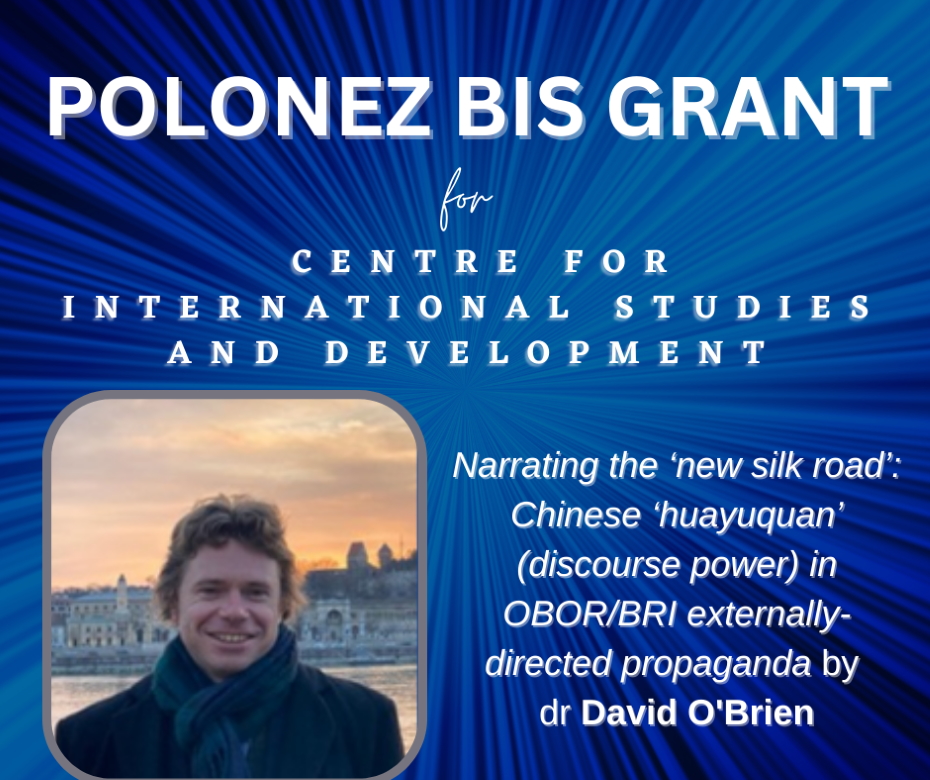 Web Content Display
Web Content Display
 Web Content Display
Web Content Display
 Web Content Display
Web Content Display
Polonez Bis Grant for the Centre for International Studies and Development
We are excited to announce that the Centre for International Studies and Development has been awarded with a Polonez BIS grant (PLN 1.1 million) for the implementation of the research project entitled "Narrating the ‘new silk road’: Chinese ‘huayuquan’ (discourse power) in OBOR/BRI externally-directed propaganda." This project, awarded by the National Science Centre will be conducted by Dr David O'Brien from the Ruhr University Bochum mentored by professor Marcin Grabowski.
The project aims to map the ways in which China, the CCP (Chinese Communist Party) and their international agenda, are represented in Chinese externally-directed propaganda (so called ‘exoprop’) regarding the Belt & Road Initiative (OBOR / BRI). This project will also explore the way this is perceived and interpreted by audiences beyond China’s borders, to consider how, why or to what extent, this exoprop is effective.
In the wider context of concern over the use of propaganda in service of militarism and nationalism (as can be seen in Russia’s control of its own media in the context of the war against Ukraine), it is vitally important to explore the ways in which national images and international agendas are sculpted in state propaganda – perhaps particularly examples which seek to garner support in global audiences. There has also been increased interest in ‘persuasive media’ in the context of the Covid-19 ‘infodemic’. This has led to more attention to ‘persuasion’, but also, why people reject, not simply accept, media messages they may encounter. Though there is a vast amount of research on Chinese propaganda, most focuses upon internallydirected media, and there is almost no research on examples constructed primarily for external audiences.
Given the extent to which China is concerned with sculpting a particular national image in a global context, this absence is striking. There has, however, been an increase in English-language Chinese media produced in the past decade. This has been officially framed as ‘discourse power’ (huayuquan), which is seen in China as being an important means of offering a ‘more accurate’ depiction of China as a nation, and its political program, by challenging mainstream western media. Connecting these, this research proposes to analyse examples of Chinese exoprop on the BRI project, but also to explore how it is perceived and interpreted by people in different social and cultural contexts.
You can find more information about the Polonez BIS grant on the CISAD website.
Contact person: Monika Kwiatkowska






